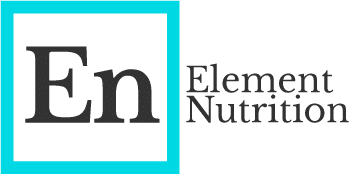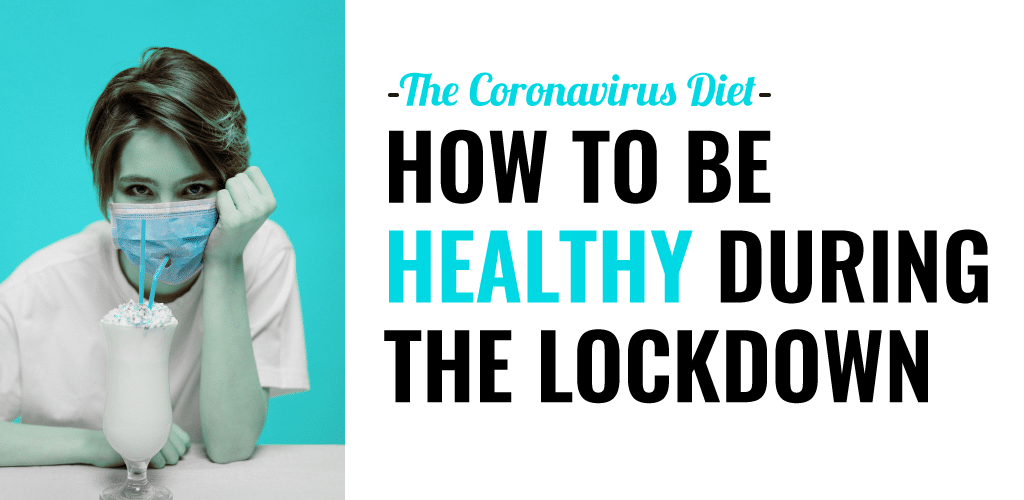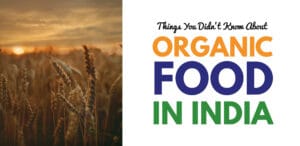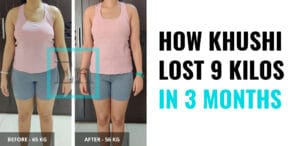We screwed up, again. Thanks to blatant social distancing violations, the coronavirus pandemic has infected a lot more people around the world than it would have otherwise. In India, this has led to the biggest lockdown in the history of the planet. Although we haven’t reached Stage 3 of the coronavirus pandemic yet, I feel it’s best that we stay prepared, at least in terms of our diet.
If the coronavirus starts spreading even more rapidly, we may face a food crisis where supplies fall short and prices increase, making some of our everyday items difficult to afford. This may confuse you about which food items to buy to maintain a healthy diet…and finances. That’s why in this post, I have come up with a system to help you decide that. While the financial situation resulting from the coronavirus lockdown isn’t in your control, your diet still is.
Need vs. Want
In unpredictable times like these, it’s better to focus on buying what you ‘need’ rather than ‘want’. You ‘need’ water, but you don’t ‘need’ cookies, you ‘want’ them – there’s a huge difference. The ‘need’ approach prioritizes only those nutritional factors which are required to ensure normal biological functioning of the body. Since we don’t know exactly for how long the coronavirus pandemic is going to last, it’s better to err on the side of caution by sustaining yourself on a diet which uses your resources efficiently i.e. by using the ‘need’ approach.
This approach forms a diet that is less than optimal or sub-optimal.
What is a Sub-Optimal Diet?

In a scene from “The Martian,” astronaut Mark Watney employs some ingenious methods to plant crops on Mars
Remember ‘The Martian’? The movie where Matt Damon gets stuck on Mars all alone and he survives only on potatoes grown using human poop? The Martian represents pretty much the worst scenario you can be in – stranded on a planet where no food grows. In contrast, the best-case scenario is represented by the movie ‘Cloudy with a Chance of Meatballs’ (I know that’s quite a mouthful, pun intended). Why? Because in this movie, food rains from the clouds instead of water.
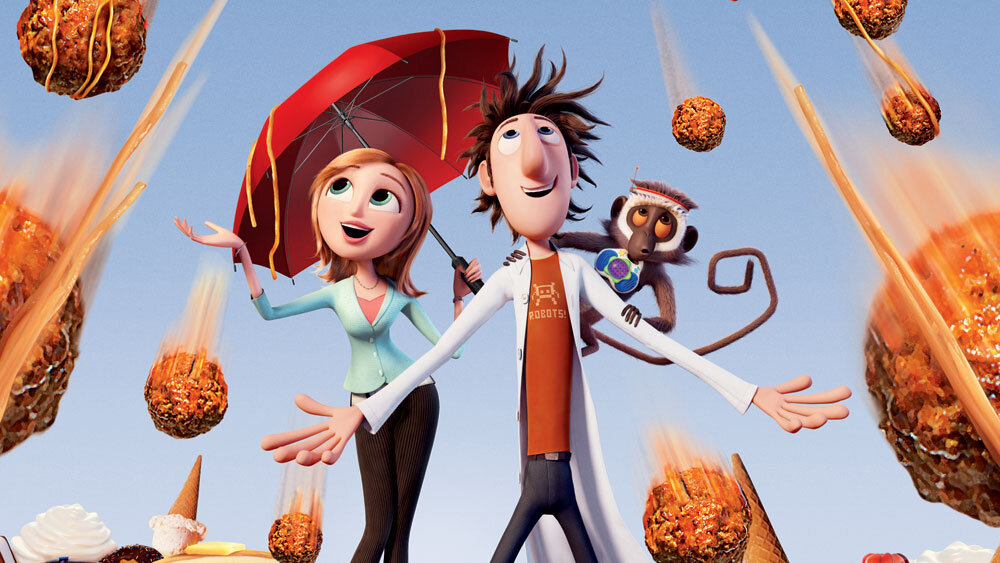
Meatballs and spaghetti raining from the clouds in a scene from Cloudy with a Chance of Meatballs
On a side note – If you don’t know about these movies, watch them as they are fantastic!
I consider an optimal diet to be exactly in the middle of these 2 scenarios. You can even call it the ‘Goldilocks Zone’ – neither too much nor too little. A sub-optimal diet, on the other hand, is when you purposely move slightly towards the uncomfortable Martian scenario. The idea is to bear just a little bit of discomfort to help stretch your food and monetary resources for longer.

With that context in mind, I have listed certain important nutritional factors. I have excluded the factor of money or cost for 2 reasons, first, it isn’t a nutritional factor. Second, it depends on your financial situation. If you are experiencing a cash crunch, then obviously cost will be at the top of the list. On the other hand, if money is the least of your worries, then the cost factor will not be as important. Although the cost factor decides the food products you can afford to fulfil each nutritional factor, you don’t need expensive food products like superfoods or cold-pressed juices to create a healthy diet.
The nutritional factors, listed from most to least important, are as follows –
- Calories
- Protein
- Fat
- Vitamins and Minerals
- Secondary factors
Calories
When it comes to survival, calories are the most important factor. As discussed in my post on increasing immunity against the coronavirus, being in a calorie deficit i.e. a weight loss diet, isn’t recommended during pandemics as it might reduce immunity. Better to maintain weight instead.
You can easily find out the number of calories required to maintain your current weight using this equation –
1.2 x 24 x Your weight (in kg)
Calories from Processed food
This one is a little tricky. I generally prefer to minimise the consumption of processed food because of the large number of calories they contain. However, this drawback becomes an advantage in situations where whole foods are scarce. For example, 2 cakes of dried noodles contain enough calories from fat and carbs to take care of at least one standard Indian meal of roti, sabzi and dal. Processed food is also cheaper than whole food making it a better option when money is tight.
Won’t processed food cause weight gain?
Weight gain is the result of eating on a calorie surplus and following an unhealthy lifestyle for years together (no exercise, stress etc.). If you get to a stage where you might need to follow this diet to make it through the coronavirus lockdown, it’ll be for a very short time period (a few weeks at most). If you ensure that you get adequate sleep and exercise simultaneously, you’ll be fine. Additionally, you’ll need to consider this diet only if things get very bad.
Consider this, if you had to make a choice between surviving with insufficient calories from whole food and getting sufficient calories by eating processed food, which would you choose? I think the latter option sounds better.
Protein
The immune system requires protein to function well. Sources of protein include animal products such as meat, eggs and dairy, which are ok to eat nutritionally speaking but I avoid them due to ethical reasons and prefer vegetarian sources instead. These include beans, grains, pulses, nuts and seeds. I really like soy chunks because they are high protein (50% of their dry weight is protein), cheap and easily available. I recommend eating 50-60g of soy chunks every day which will easily provide 25-30g of protein. Many of you might be concerned about the effects of soy on your thyroid and testosterone. I have covered both these topics in the past in much detail and eating soy affects neither the thyroid nor your testosterone.
Other sources such as protein powders and bars are also a very convenient option. But these might be difficult to acquire right now since most supplement companies have temporarily stopped shipping their products. Coronavirus or no coronavirus, your diet should give you between 1.2-1.6 grams of protein per kg of body weight.
Fat
Wouldn’t it make more sense to include carbohydrate before fat? No, because your body requires carbohydrates primarily for one thing – making Glucose. You’d die if your body ran out of glucose. Breaking down carbohydrates from food is the easiest way to make more glucose. Luckily, glucose can be made from fat as well by gluconeogenesis (translates to ‘make new glucose’). If you stopped eating carbs altogether, your body fat is broken down to glucose. Therefore, carbohydrates aren’t essential for life, glucose is.
However, fat is essential for life because it is required for a lot of important functions like digesting fat soluble vitamins. Additionally, fat provides 9 calories per gram as compared to just 4 calories per gram from carbohydrate.
10g Fat = 90 calories
10g Carbohydrate = 40 calories
Since fat provides more calories than carbs, it could make you feel fuller.
A low carb diet won’t be as much fun, but you’ll live. I am not advocating that low carb diets are better. My aim is to show you that fat is more important than carbohydrate on a sub-optimal diet. In optimal diets, carbohydrates are also important.
Vitamins and Minerals
To maintain your immunity, ensure that you get all vitamins and minerals (micronutrients) in the required quantities. This is easily accomplished by a diet containing a variety of fruits, vegetables and grains.
If a particular food group isn’t available, then supplement for the respective vitamin or mineral. For example, if citric fruits aren’t available, then you could take a Vitamin C supplement. In the case of nuts, a Vitamin E supplement will cover most people’s requirements as that is the major micronutrient you receive from nuts. If many food items aren’t available, take a multivitamin and multimineral tablet.
If you are vegan and concerned about calcium intake, then check out this article on how to get enough calcium on a vegan diet.
Vitamin B12 and Vitamin D3
The most important vitamins are Vitamin B12 and D3 and need to be supplemented as your diet cannot provide enough of them. Your body makes Vitamin D3 when the skin is exposed to the sun. But during the lockdown, we are spending most of our time indoors, away from the sun. To be safe, you can take the following maintenance doses –
Vitamin B12 – 1 capsule with 500-1000 mcg of methylcobalamin
Vitamin D3 – 1 capsule with 800-1000 I.U. of cholecalciferol
Secondary Factors
Hunger, taste, texture etc. fall at the bottom of my list as they are secondary to survival and can be given more consideration under better conditions. Your quality of life might lower slightly but at least your body will function normally.
What does your list of priorities include? Let me know in the comments!
